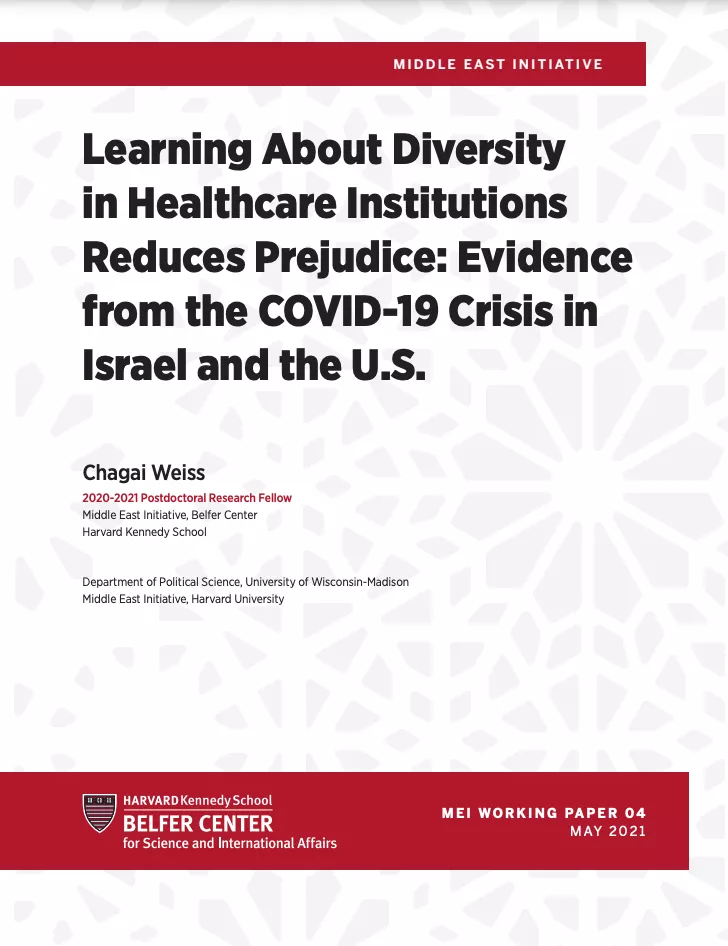Reports & Papers

Recommended citation
Weiss, Chagai. “Learning About Diversity in Healthcare Institutions Reduces Prejudice: Evidence from the COVID-19 Crises in Israel and the U.S..” May 2021
Up Next

Weiss, Chagai. “Learning About Diversity in Healthcare Institutions Reduces Prejudice: Evidence from the COVID-19 Crises in Israel and the U.S..” May 2021